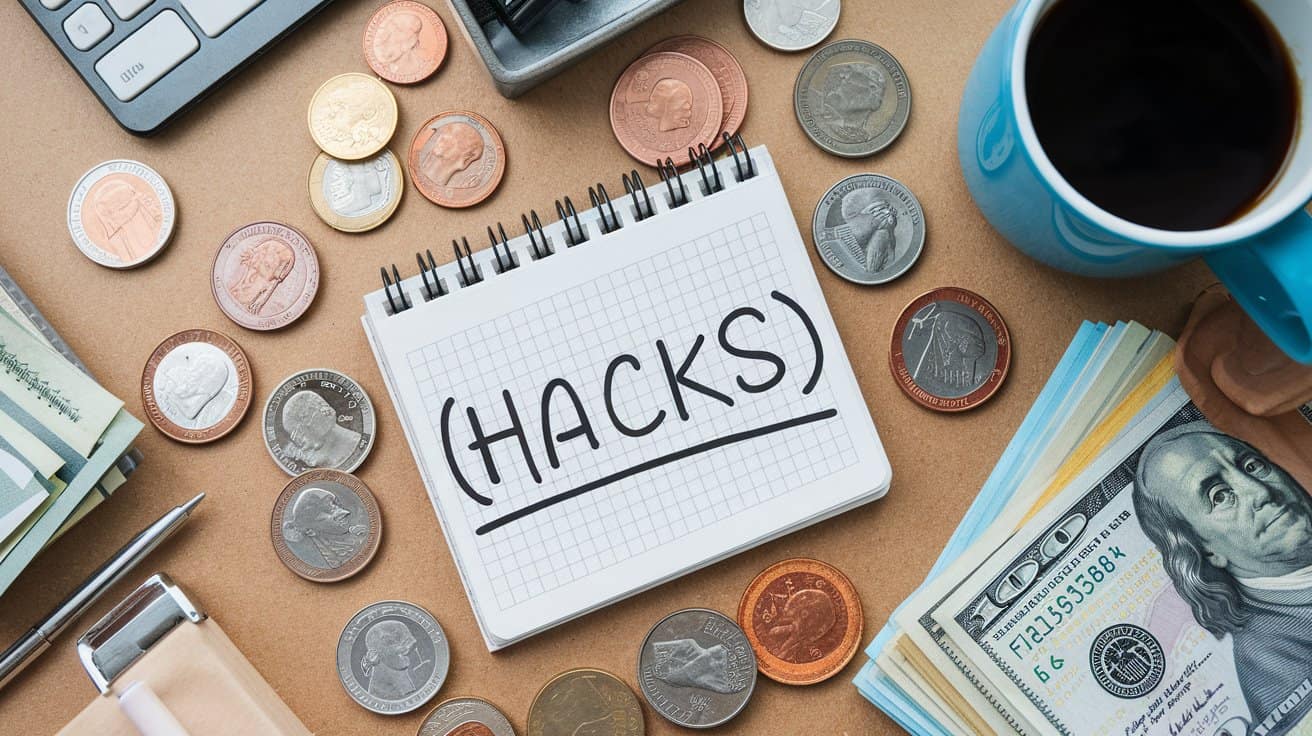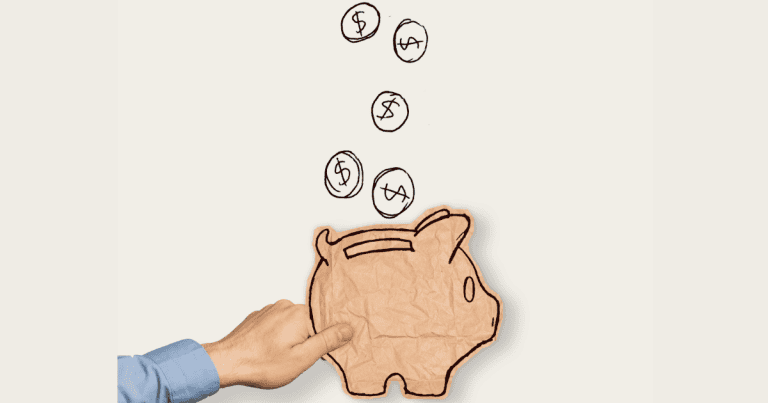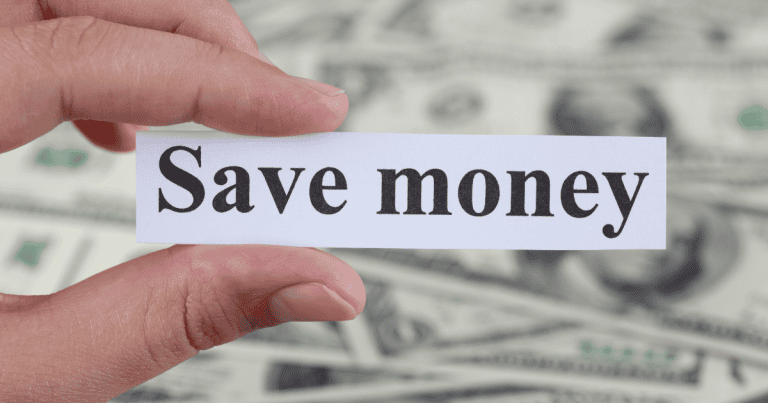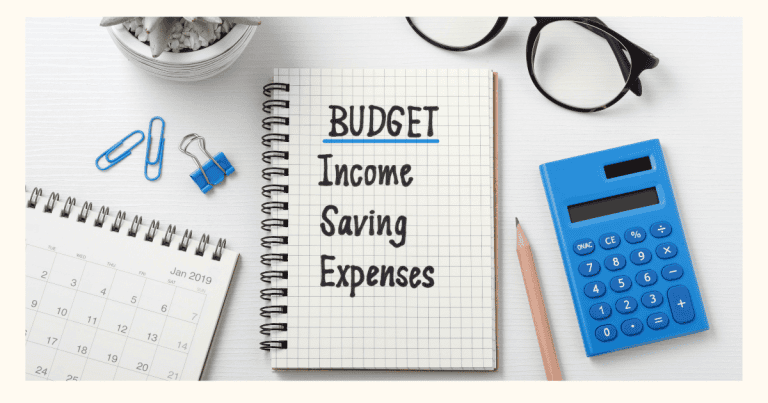10 Easy Financial Life Hacks You’ll Wish You Knew Sooner

What if I told you there are hacks that can save or make you thousands of dollars, and most people don’t even know they exist? If you’re just starting your financial journey or looking to level up your game, this list of financial life hacks is here to surprise you. From flying for free to building small funds that save you big stress, these clever strategies will help you keep more cash in your pocket without sacrificing your lifestyle.
1. Fly for Basically Free, Anywhere
Imagine going to your dream destination without spending a dime on flights. By using credit card rewards, you can do just that. Travel rewards cards like Chase Sapphire Preferred or Venture X let you earn points for your everyday spending.
To start, look for credit cards that offer lucrative sign-up bonuses. For example, some cards give 60,000 points or more if you spend a certain amount in the first three months. This can easily cover a domestic round-trip flight or even an international one when transferred to airline partners. Next, focus on using the card for your daily purchases like groceries, gas, or utility bills. Every dollar you spend turns into points or miles.
When you’ve accumulated enough points, it’s time to redeem them strategically. Many credit cards allow you to transfer points to travel partners, such as airline frequent flyer programs. Transferring points gives you better value than redeeming them for cash or gift cards.
You should also sign up for frequent flyer programs with the airlines you use most often, these programs usually allow you to earn and stack miles for even bigger savings.
Just make sure to always pay off your balance in full each month. The value of free flights can quickly disappear if you’re paying interest on your credit card balance. Combine careful planning with regular spending, and you’ll be flying for free in no time.
2. Get Free Money by Opening Bank Accounts
Banks are practically giving away money if you know where to look. Many banks offer sign-up bonuses, sometimes as much as $200 or more, for opening a checking or savings account and setting up direct deposits.
You can research these offers on websites like Doctor of Credit. Set reminders for meeting the bonus conditions, such as maintaining a minimum balance or making a certain number of transactions. Avoid unnecessary fees by reading the fine print, and close the accounts once the bonus is secured if you no longer need them.
3. Cash In on Sign-Up Bonuses
Did you know you can earn hundreds of dollars just by signing up for apps and services? Platforms like Robinhood, Rakuten, and Swagbucks offer bonuses for new users. For example, Rakuten gives you $30 just for spending $30 at one of their partner stores.
You can stack these bonuses with cash-back credit cards to maximize your rewards. For example, use a Rakuten referral link to shop online and earn cashback while also meeting sign-up bonus requirements.
Some platforms, like Swagbucks, also have seasonal promotions, offering up to 1,000 bonus points for completing certain tasks. This can translate to an extra $10-$15 easily.
4. Become Super Rich By Investing Small
Most people think you can only become a millionaire on a six-figure salary, but you can actually do it on a lower income too. It just takes consistency and a lot of time. The power of compound interest makes this possible. Even small amounts invested consistently over time can grow into substantial wealth.
For example, putting just $100 a month into a low-cost index fund can result in hundreds of thousands of dollars over a few decades. The earlier you start, the more time your money has to grow. Tax-advantaged accounts like 401(k)s or IRAs are also essential to have in place. They help you save for the future while reducing your taxable income. If your employer offers a match on your 401(k) contributions, take full advantage of it, it’s free money.
5. Shop Online and Earn Extra Cash
Why pay full price when you can earn cash back or find discounts for everything you buy online? Tools like Rakuten and browser extensions like Honey help you save big. Rakuten gives you cashback on purchases, while Honey automatically applies coupon codes at checkout.
You should stack these savings by using credit cards with rewards programs. For example, combine Rakuten’s cashback with points from a travel rewards card to double-dip on savings.
6. Build Sinking Funds for Peace of Mind
If you have ever been hit with an unexpected car repair or some other thing of the sort, you need to have a sinking fund. These are small savings buckets for expenses you can predict, like vacations, birthdays, vet visits, etc..
Create a separate account for each sinking fund and use a high-yield savings account like those from Ally or Marcus. Automate small monthly deposits. For example, if your annual car insurance is $600, save $50 a month to ensure you’re ready when that bill arrives.
Apps like YNAB (You Need A Budget) can help you set up and track sinking funds easily. This way you avoid tapping into your emergency savings or relying on high-interest credit cards.
7. Lower Your Student Loan Interest By Refinancing
Refinancing your student loans could potentially save you thousands over the repayment period. Credit unions or low-interest providers like SoFi offer competitive rates, especially for borrowers with good credit.
Check out platforms like Nerdwallet, which allow you to compare refinancing offers from multiple lenders at once. Many providers also offer sign-up bonuses of $200 or more for refinancing. If refinancing isn’t an option, some repayment plans can still help reduce your monthly payment while maintaining eligibility for loan forgiveness programs.
8. Do Grocery Shopping The Smart Way
Groceries can eat up a big chunk of your budget, but some small changes can allow you to save a lot more. Plan your meals around sales and discounts by using apps like Flashfood or Flipp, which show you deals at local stores. Combine these with receipt-scanning apps like Ibotta and you will earn rewards and cashback for items you already buy.
Stock up during sales and buy non-perishable items in bulk to help reduce your costs over time. Just be mindful of unit prices to ensure you’re getting the best deal. Another trick is to shop at farmers’ markets near closing time, vendors often discount produce to avoid taking it home.
9. Negotiate Everything, Even When You Think You Can’t
Negotiation isn’t just for important deals, it can apply to everyday expenses like cable bills, rent, and even medical bills. The key is to ask, be polite, and come prepared. Research average costs in your area to make a reasonable request.
If you’re unsure how to start, you can say something like, “I’ve been a loyal customer for x amount of years, is there a way to lower my bill?” this alone can be effective. For larger expenses, you should consider hiring a professional negotiator. Many charge a small percentage of the savings, which makes it a low-risk option.
Start small by negotiating at flea markets or with service providers and then try to do the same for bigger bills. The worst they can say is no, but you might just walk away with extra cash in your pocket.
10. Earn Free Stock Just for Signing Up
You know how banks lure you in with those sweet sign-up bonuses? Well, stock trading apps do the same thing, except instead of cash, they hand out free stocks. And some of them are worth way more than you’d expect.
Apps like Robinhood, Public, and M1 Finance will give you a random stock just for creating an account. We’re talking shares of real companies like Ford, Apple (if you’re lucky), or lesser-known stocks that still have value. The process is ridiculously simple:
- Sign up using a referral link (sometimes they boost the reward for referrals).
- Complete the basic account setup.
- Get a free stock deposited into your account. (you might have to make a small deposit first, like $5 depending on the app, but it’s always worth it)
From there, you can hold onto it, sell it for cash, or reinvest in something else. And if you stack this across multiple apps (yes, you can sign up for more than one), you’re looking at $50–$100 in free stocks without lifting a finger.
Some apps let you cash out immediately or after a short amount of time only, so it’s literally free money. Just be aware of the tax implications, since technically, free stock counts as income. But hey, making money without spending any? That’s a hack worth trying.
Conclusion
These hacks are meant to help you save and make money in ways that are simple and effective. Whether it’s flying for free, earning cash with sign-up bonuses, or cutting costs with smart shopping, they’re practical tips you can use to make your life a little easier.
Start with the ones that feel right for you and see how they can make a difference. Sometimes, the small changes have the biggest impact!






